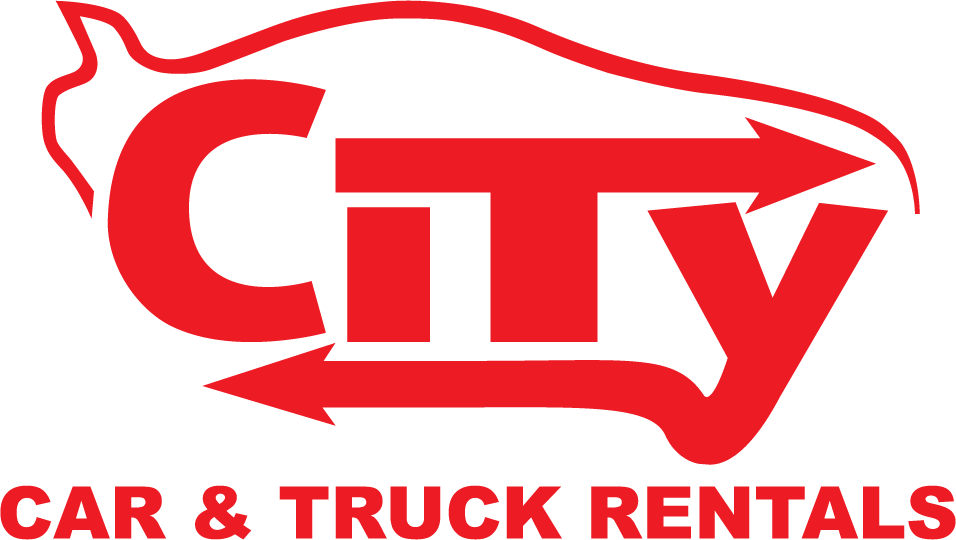People require a means of transport to reach their respective destinations throughout their everyday life. Vehicles are the most common means of transport, allowing people to move from home to school, work, or even travel to places. Sometimes you might need to take a vacation or go for a road trip, and your car is damaged, or you do not own one. The expenses of owning a car that you rarely drive could be overwhelming, discouraging you from purchasing one. Rental cars are the perfect option for people who travel once in a while or require a vehicle for a specific occasion.
The car rental involves hiring a motor vehicle from an auto rental company for a set period, usually less than a year. Renting a car takes a short time, especially when you know what you want. When searching for a rental car, use a credible rental company that offers affordable rates. You should always carry out a thorough inspection and take note of existing signs of damage using photos before taking a vehicle. You are held liable for any changes in the vehicle’s condition, so the evidence you collect could prove helpful.
If you are looking for a rental vehicle in Toronto, look no further than City Car and Truck Rental. We are the best rental car company in the area, providing outstanding customer service at affordable rates. We offer a wide range of top-quality vehicles, from minivans, cargo vans, and moving trucks to compact cars. We understand that getting involved in an accident in a rental car can be a stressful ordeal. Here’s what you need to know about rental car insurance and what you need to do after an accident.

What Should You Do After a Rental Car Accident?
Rental car accidents are the last thing people want when traveling. They are, however, inevitable despite the numerous efforts and safety measures put in place. Dealing with a rental car accident is a simple procedure with only a few complexities involving the auto rental agreement and car insurance. Your agreement with a car rental company has its own complexities. If you rent a car and unfortunately get involved in a minor damage or an accident, here are the steps you should follow after getting involved in the accident:
Ensure Everyone Is Safe
The first step is to check the state of everyone in your rental car and the other involved vehicles as well. Clear the area if there is a looming danger such as fire and call the emergency hotline if anyone sustained injuries. Be prompt and analytical when seeking medical attention after a crash, because those doctors will help you when claiming damages from the insurance company.
Exchange Contact Information
Once everyone is safe, you should get the other driver’s information, including their name, address, license number, vehicle registration, and insurance information. Remember not to say anything that implies you were at fault, and do not engage in a tussle with the other driver. Ensure that the authorities who arrive at the scene get your personal information and request a copy of their accident report.
Collect Details About the Accident
Take photographs and notes that provide relevant information about the accident, such as the types of cars involved and where the accident occurred. When filing an insurance claim or seeking other damages following a rental car accident, detailed information is critical. Noting the make, model, and color of the vehicles involved in the accident can also help you prove your case.
Call Your Auto Rental Company
Report the accident to the rental company using the emergency number listed on a sticker inside the vehicle. The service providers will help you file an incident report using the information collected and tell you what to do next.
Call Your Insurance Company
Contact your own insurance company and give them a detailed explanation of the rental car accident. You should file a claim through your personal auto insurance policy or contact your credit card company as soon as possible. You need to ensure that your auto insurance policy also covers rental cars and get to know the type of coverage it can offer. Your insurance broker will help you understand the details of your insurance coverage before making any decisions.
You can acquire rental car insurance coverage from your credit card if you use it to pay credit card insurance coverage caters to all property damage and personal injury in some cases, regardless of who was at fault. Some cards only provide secondary coverage, so you should contact your credit card provider to get accurate details about your coverage limits.
Establish the Party Responsible for Paying Your Claim
Collision, comprehensive coverage, and liability insurance extend to damages on rental cars. If your policy does not include the aforementioned, you need a collision waiver from your rental car company. Otherwise, auto insurance is a must for every driver unless you want to foot the expenses directly from your pocket.
Pay Attention to the Deductibles
You must pay a certain percentage of the loss. This payment is made to the rental company to cover car repairs. In contrast, your insurance company will assist you with reimbursement.
What Not to do After a Rental Car Accident
Many drivers are aware of what to do in the event of a rental car accident. However, not everyone understands that doing the wrong thing can revoke many privileges and leave you with a hole in your pocket. Avoid doing any of the following after a damage to a rental car:
1. Flee the accident scene. Hit and run drivers are everywhere, but you do not want to be one. Whether you are at fault or not, fleeing from an accident scene can put you on a financial and legal hook. Whether you have valid rental car coverage or not, you may end up paying for the damage out of pocket.
2. Stay composed and assume innocence. It will be difficult to win a claim if you panic and start telling everyone that you are to blame for the accident when you may not be. Avoid accepting responsibility for the accident, no matter how terrified you are, or if you are being pressured by others involved. A declaration like this can be recorded and used against you in court. Also, refrain from discussing the accident with anyone who inquires; you may reveal information that will work against you.
3. Do not overlook minor injuries. A minor injury could have serious consequences. Most of the time, minor accident injuries result in serious health risks. After the accident, go to the hospital for an evaluation to rule out any internal injuries.
4. If possible, do not contact the at-fault driver’s insurance company without involving your lawyer. An accident attorney can assist you in navigating the maze of insurance claims. They will prepare the best statement to present to the other driver’s insurance company and may even negotiate a settlement on your behalf.
Do You Need Rental Car Insurance?
Getting vehicle insurance from a rental company before renting a car is not mandatory in Canada. You, however, still require coverage that will protect you and the rented car in the event of an accident because third-party liability coverage is required to operate a vehicle in Canada. Rental car companies offer drivers rental car coverage once they pick up their vehicles. Car rental coverage protects the vehicle, its passengers, and the passengers of other vehicles involved in the accident. It offers four types of coverage, namely:
- Collision damage waiver.
- Liability insurance.
- Personal accident insurance.
- Personal effects coverage.
Collision coverage or loss damage waiver caters for the damaged rental car alone, covering the cost of any occurrences such as an accident, fire, or theft. A collision damage waiver lifts the right of the rental company to pursue you for any loss or damage to the vehicle. Some car rental companies might charge additional fees for towing costs, administrative fees, revenue lost during repair, and depreciation of the resale value.
Liability coverage caters to injury to other people and damage to their property when you are at fault for the accident. Personal accident insurance offers accidental death and dismemberment coverage to the people inside the rental car after a collision. Personal effects coverage caters to your personal belongings in case of damage, loss, or theft inside the rented vehicle. A personal insurance policy can spare you from purchasing the rental company’s insurance.
What Happens If You Lack Coverage?
Getting into an accident with a rental car is stressful, and lacking an auto insurance policy makes things more complicated. If you were not at fault for the accident, you may sue and acquire compensation for personal injuries, rental car damage, and other losses. You can file a claim against the other parties involved if they were at fault, but you could face a few restrictions. The other driver’s insurance company might limit the extent and amount of compensation you get if you are uninsured. Remember, third-party liability coverage is required to operate a vehicle in Canada – so you do not want to get caught driving while uninsured, and being underinsured can also be costly.
Your rental agency might decide to work directly with the other driver’s insurance company or let you deal with them instead. Even if you acquire compensation, you may still be penalized for driving without insurance and failing to provide proof of financial responsibility. The penalties could be in the form of license sanctions or fines.
Being at fault in a rental car accident puts you in trouble with the rental car company, and the parties involved who require compensation. The company will hold you liable for any damage to the rented vehicle, and you will have to pay from your pocket. You also cater to any losses and personal injuries to the other parties involved. The other driver could file an uninsured motorist claim with their insurance company, forcing you to contribute at least half of what their coverage pays.
You will go through several complications and pay substantial amounts if you drive non-owned automobiles and get into an accident without insurance. Make sure you are covered by your personal insurance before turning down the coverage by your rental car company or get comprehensive coverage at the rental car counter or with an insurance company to ensure your safety.
What Happens When you Have Coverage?
Auto insurance policies cover car rentals, but insurance companies are skilled at due diligence. Before approving any compensation, they will check your coverage limits and deductibles. The financial protection you receive from collisions and other liabilities is determined by your coverage.
Some credit cards will provide rental car insurance. However, this only works if you pay the car rental company with the card. Your best options are liability, collision, and comprehensive insurance policies, which help cover damages without affecting your liquidity.
What to Do Before You Rent a Car
The checklist below will give you easy rides on rental cars:
1. Make Sure You Have Your Paperwork Right
Rental car agencies will need your driving license to initiate an arrangement. Forgetting yours at home will stall the agreement process.
2. Check the Car Exteriors and Interiors for Damages
Point out any prior dents before driving the rental car.
3. Familiarize Yourself With the Car
Get to understand the car model by adjusting the seat and steering wheel to match your preferences. Make sure you are aware of the type of fuel your rented model uses.
4. Stay on the Road and be Cautious about Where you Park.
Do not take your rented car on rocky safaris as this may give it unavoidable dents.
5. Make Sure You Have Valid Insurance Coverage
Even if you are confident in your driving abilities, the insurance coverage will come in handy in the event of an accident. If you want to venture into the world of car rentals, work with a reputable insurance company to ensure complete coverage.
Best Rental Cars in Toronto, Canada
City Car and Truck Rentals is one of the best auto rental companies in the region. We offer quality vehicles from top brands and collaborate with the best insurance companies for rental car coverage. We strive to serve our clients in the best way and achieve customer satisfaction through our devoted staff. We believe that you are the most vital part of our business, so we provide the best. Call us now at 416-800-1222 or 1-888-777-9202 for more information.



